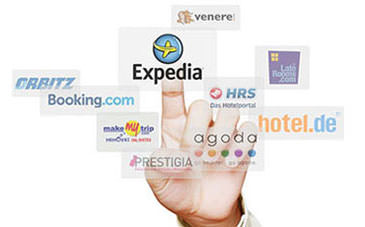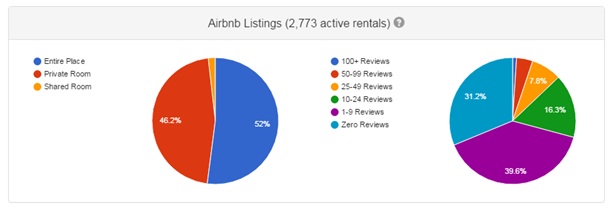Many hotels today are not happy with their sales as they are facing a lot of competition and are struggling to manage a variety of online channels and technology solutions. In this article, I will talk about some tips to overcome these inconveniences and increase profits for your property.
The fundamental thing is to connect to the right channels based on the markets that book your hotel, and of course apply revenue management strategies to offer the right prices to the right customer segment.
In a highly fluctuating market, online visibility has become essential, and having a booking engine on the hotel brand website is a key to drive direct business.
This needs to be complemented with a Channel Manager so that you can manage all your connected sales channels easily and efficiently. Further, to know what rates you should charge for different room types for different time periods, you need to know your competitors rates as a benchmark. Hence having a rate shopping tool has become a must to get real-time rate reports.
To ensure you have a clear picture of your availability and occupancy status, it is important to have everything linked to your property management system to make updates and reporting seamless.
Here are some distribution hacks you can implement to get more online bookings –
Tip #1: Research and select some high-performing OTAs and travel sites to promote your property. The commission you pay will be partially offset by additional business on your website.
Tip #1: Research and select some high-performing OTAs and travel sites to promote your property. The commission you pay will be partially offset by additional business on your website.
Suggestion – Google Local Business: it’s free. Studies have shown that clients look for hotels in different OTAs but also decide to investigate the hotel’s own page. In this case, the booking engine is of fundamental importance. Having a brand website with all the information is key. Fortunately, Google AdWords allows your hotel to be localized with keywords. And do not forget the location and Google maps since the apps on the smartphones are the order of the day. In case you are looking for a booking engine or connecting with Google, let us know and we can help.
Tip #2: Do not forget to watch your competitors. It is important to have a defined set of competitors, not just who you presume is your competitor by star category, but also keep in mind factors like proximity to your location. An interesting strategy is to create a rate equal to or slightly lower than the competitor and another with a slightly higher value – this way you can attract guests looking for economic options while at the same time target the next segment. Get real-time competitor rate reports through RateTiger Shopper.
Tip #3: With online travel booking growing every year, it is important to have correct rates and inventory displayed on the online channels – it can become very difficult to handle if done manually leading to costly mistakes due to errors in rate updates. Hence is it important to have the channel manager to ensure updates are smooth. Further, 2-way connectivity provides reservation delivery flow into the PMS thereby providing correct inventory status at all time. RateTiger channel manager offers the maximum number of channel connections with maximum uptime ensuring all your updates are immediate, thus helping maximize online revenue.
Tip #4: Know and penetrate the market that books your property – find out the key source markets for your city and region. Create special promotions and offers to target these source markets to attract guests to your property. These promotions can be based on different parameters – long stay, lead time, early booking, etc. In this way, you can apply the correct promotion for each destination. You can leverage Demand Central on LIVE OS to get all this valuable information and create specific campaigns accordingly.
Tip #5: Be visible on TripAdvisor and other travel review sites – encourage your guests to leave comments and reviews to gain more visibility. Sign up for metasearch engines and drive direct traffic to your hotel website. Beyond the searches for room rates, the opinion of guests who have stayed at your hotel hugely influences booking decisions of prospective guests. Track your reviews on multiple sites to know your strengths and also areas for improvement as it presents a unique opportunity to improve and grow. Use platforms like LIVE OSthat aggregate these reviews in a single platform for you to track, monitor and respond to guests.
There is no easy way to success – it is important to understand your guests and their preferences. Being available at relevant touch points will help improve your hotel’s visibility and booking conversion. It is important to encourage change, and seek strategic partners to do so, and remember the right partner will not be a cost center, infact they can be a valuable investment.
Offering a unique product or creating a differentiated service is not impossible, using value additions and experiential marketing techniques to rise above your competition can show improved results.
Julian Lindt is the Connectivity Advisor for LATAM at eRevMax. He can be reached on julianl@erevmax.com for any queries with regards this article.







